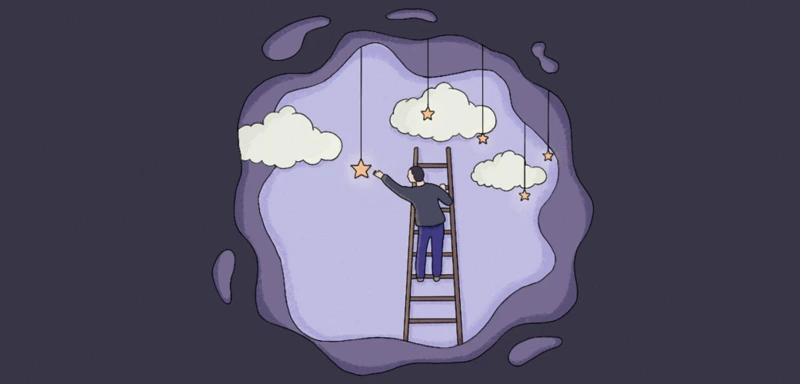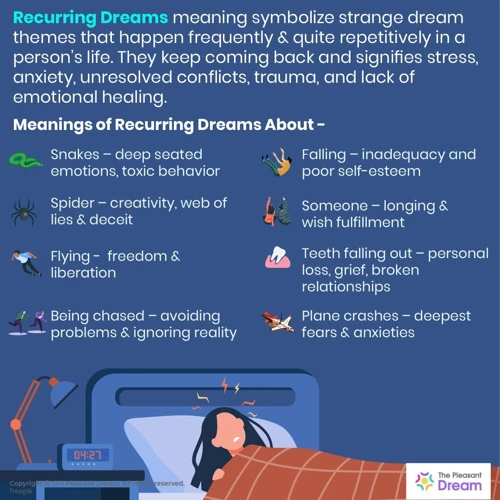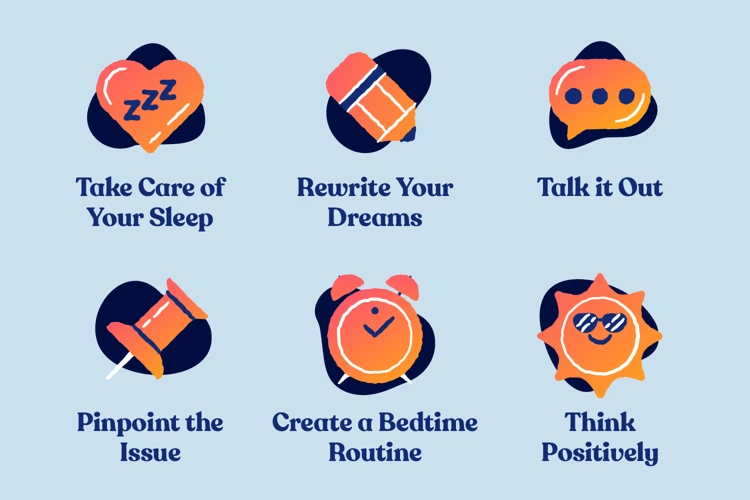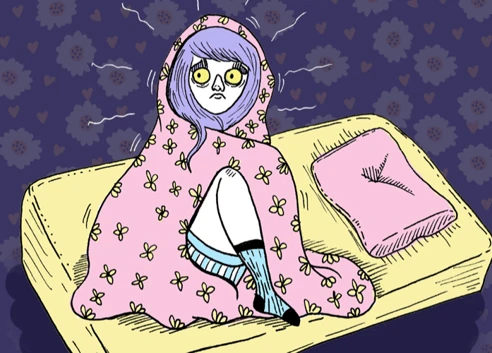Do you ever wake up in the middle of the night, startled and sweating from a disturbing dream? You’re not alone. Nightmares can be a common occurrence, and they often leave us feeling anxious and stressed. But have you ever wondered why nightmares seem to be linked to stress and anxiety? In this article, we will explore the connection between nightmares, stress, and anxiety, and how they can affect our overall well-being. Through understanding and managing these factors, we can take steps towards a more peaceful and restful night’s sleep. So, let’s dive into the fascinating world of dreams and emotions to uncover the truth behind their profound connection.
Understanding Nightmares

Understanding nightmares is the key to unraveling their mysterious nature and their connection to our emotions. Nightmares can be defined as vivid and distressing dreams that often result in feelings of fear, anxiety, and unease upon waking up. These dreams are usually characterized by intense imagery, intense emotions, and a sense of being trapped or helpless. There are different types of nightmares that people can experience, such as recurrent nightmares, which are repeated themes or images, and psychological nightmares, which are rooted in unresolved emotions or traumas. By exploring the intricacies of nightmares, we can gain insight into the hidden messages they may carry and their impact on our mental well-being. To further delve into the symbolism and themes present in nightmares, you can read our article on analyzing the symbolism in nightmare themes. Understanding the psychological aspects of nightmares is essential in understanding their impact on mental health, as explored in our article on the impact of nightmares on mental health.
Definition of Nightmares
Nightmares can be defined as intense and distressing dreams that provoke strong negative emotions, often causing a sense of fear, panic, or anxiety upon waking up. These dreams are characterized by their vivid and often bizarre imagery, as well as the feelings of helplessness or being trapped that they evoke. Nightmares typically occur during the REM (rapid eye movement) stage of sleep, which is when our most vivid dreams occur. Unlike regular dreams, nightmares can be more intense and memorable due to the strong emotions they elicit. They can involve a wide range of themes and scenarios, from being chased or attacked to facing a phobia or experiencing a traumatic event. Nightmares can vary in frequency, with some individuals experiencing them sporadically, while others may have recurring nightmares that persist throughout their lives. To gain a deeper understanding of the psychological aspect of nightmares, you can refer to our article on understanding psychological nightmares. Understanding the definition of nightmares is crucial in recognizing their significance and the impact they can have on our mental and emotional well-being.
Types of Nightmares
When it comes to nightmares, there are various types that people may experience. These different types often have distinct characteristics and themes, providing valuable insights into their underlying causes. Here are some common types of nightmares:
- Recurrent Nightmares: These nightmares involve the repetition of similar themes or images across different nights. They can be triggered by unresolved emotions, traumatic experiences, or ongoing stressors in one’s life. Recurrent nightmares can often leave individuals feeling anxious and on edge, making it crucial to address the underlying issues causing them.
- Physical Threat Nightmares: These nightmares involve situations where individuals feel physically endangered or threatened. They may involve scenarios such as being chased, attacked, or trapped. Physical threat nightmares can be related to feelings of vulnerability, insecurity, or a sense of powerlessness in one’s waking life.
- Nightmares of Embarrassment or Humiliation: These nightmares revolve around situations where individuals feel embarrassed or humiliated in front of others. They may involve scenarios such as public speaking disasters, being naked in public, or social rejection. These nightmares often stem from underlying fears of judgment, rejection, or a lack of self-confidence.
- Nightmares of Failure or Inadequacy: These nightmares are centered around feelings of failure, disappointment, or incompetence. They often occur when individuals are facing high-pressure situations or experiencing self-doubt. These dreams may reflect concerns about not meeting expectations or fears of being judged for one’s shortcomings.
- Supernatural or Paranormal Nightmares: These nightmares feature otherworldly or supernatural elements, such as ghosts, demons, or monsters. They can be influenced by cultural beliefs, media exposure, or personal fears of the unknown. Supernatural nightmares may represent deeper anxieties or unresolved emotions related to the mysterious and unexplained.
Understanding the different types of nightmares can help individuals recognize and analyze the specific themes and emotions that appear in their dreams. By identifying the underlying causes of these nightmares, individuals can take steps towards addressing and resolving the issues that may be contributing to their anxiety and distress during sleep.
Exploring Stress and Anxiety

To understand the connection between nightmares and stress and anxiety, we must first explore the concepts of stress and anxiety themselves. Stress is a normal physiological response to challenging or threatening situations, causing a surge of physical and mental tension. It can be triggered by various factors, such as work pressure, relationship problems, or financial difficulties. On the other hand, anxiety is a persistent feeling of unease, worry, or fear, often associated with specific events or situations. In both stress and anxiety, the body’s natural response systems, such as the release of stress hormones, can become overactive and affect our overall well-being. It is essential to gain a deeper understanding of stress and anxiety to comprehend their influence on our dreams and nightmares.
Definition of Stress
Definition of Stress: Stress is a natural response of the body to any demand or threat, whether it is real or perceived. It is a physiological and psychological reaction that affects our overall well-being. When we encounter a stressful situation, our body releases stress hormones like cortisol and adrenaline, preparing us for a fight-or-flight response.
Stress can stem from various sources, including work pressures, financial difficulties, relationship issues, or traumatic events. It can manifest in different ways, such as irritability, restlessness, difficulty concentrating, or physical symptoms like headaches and muscle tension. Stress can be categorized into two types: acute stress, which is short-term and can be beneficial in certain situations, and chronic stress, which is long-term and can have detrimental effects on our health.
To better understand stress, let’s take a closer look at its impact on our body and mind. Here is a breakdown of the physical and psychological symptoms of stress:
Physical Symptoms of Stress:
- Headaches: Stress can contribute to tension headaches or migraines.
- Stomach Issues: Stress can lead to digestive problems, including stomach aches, nausea, or diarrhea.
- Sleep Disturbances: Stress can disrupt our sleep patterns, causing difficulty falling asleep or staying asleep.
- Changes in Appetite: Stress can affect our eating habits, leading to an increase or decrease in appetite.
- Low Energy: Chronic stress can leave us feeling fatigued, drained, and lacking energy.
Psychological Symptoms of Stress:
- Anxiety: Stress often triggers feelings of unease, worry, and anxiety.
- Irritability: Stress can make us more prone to irritability, anger, or mood swings.
- Difficulty Concentrating: Stress can impair our ability to focus, concentrate, and make decisions.
- Memory Problems: Chronic stress can affect our memory and cognitive function.
- Emotional Disturbances: Stress can cause mood changes, such as feeling overwhelmed, sad, or hopeless.
Understanding the definition and symptoms of stress is crucial in recognizing the impact it can have on our daily lives. By identifying these signs, we can take proactive steps to manage stress and mitigate its effects on our overall well-being.
Definition of Anxiety
Anxiety is a complex and multifaceted emotional state that is characterized by feelings of worry, fear, and apprehension. It is a normal human response to stress and danger, often serving as a protective mechanism. However, when anxiety becomes excessive or prolonged, it can significantly impact an individual’s daily life and overall well-being. People with anxiety disorders experience intense and persistent anxiety that is disproportionate to the actual threat or situation. Anxiety can manifest in various ways, including physical symptoms such as rapid heartbeat, shortness of breath, sweating, and trembling. Additionally, individuals with anxiety may experience racing thoughts, excessive worrying, difficulty concentrating, irritability, and sleep disturbances. It is important to note that anxiety disorders are different from normal feelings of anxiousness that everyone experiences in certain situations. If left untreated, anxiety disorders can interfere with relationships, work productivity, and overall quality of life. Seeking professional help and adopting healthy coping mechanisms are essential steps in managing and reducing anxiety symptoms.
The Link between Nightmares, Stress, and Anxiety

The link between nightmares, stress, and anxiety is a complex and interrelated one. Stress can be defined as the body’s response to external pressures or demands, while anxiety refers to a feeling of unease or worry. When we experience stress and anxiety, it can disrupt our sleep patterns and lead to an increased likelihood of nightmares. This is because heightened levels of stress and anxiety can make it difficult for the mind and body to relax and enter a deep, restful sleep. Additionally, nightmares can serve as a way for our subconscious minds to express and process the intense emotions associated with stress and anxiety. Through vivid and sometimes frightening dream scenarios, nightmares allow us to confront and explore our deepest fears and concerns. This emotional release can have both positive and negative effects on our psychological well-being. To learn more about the impact of stress and anxiety on sleep, you can refer to our article on the impact of stress and anxiety on sleep.
Impact of Stress and Anxiety on Sleep
The impact of stress and anxiety on sleep is significant and can directly contribute to the occurrence of nightmares. Stress is a natural response to challenging situations, and when it becomes overwhelming, it can disrupt our ability to fall asleep and maintain a restful state throughout the night. Worries, racing thoughts, and a sense of unease can keep our minds active and prevent us from entering the deep sleep stages where dreams typically occur. Similarly, anxiety, which is characterized by excessive worrying and a constant state of apprehension, can heighten our alertness and make it difficult to relax and fall asleep. The quality and duration of our sleep can be compromised when stress and anxiety are present, leading to an increased likelihood of experiencing nightmares. Additionally, studies have shown that individuals who experience chronic stress or anxiety are more prone to having nightmares on a regular basis. This suggests a clear relationship between the two, with stress and anxiety serving as triggers for disturbing dream experiences. It’s important to address and manage stress and anxiety effectively to promote better sleep quality and reduce the occurrence of nightmares.
Role of Nightmares in Expressing Emotions
The Role of Nightmares in Expressing Emotions
Nightmares play a significant role in expressing our deepest emotions, serving as a conduit for the subconscious mind to communicate with the conscious self. When we experience stressful or anxiety-inducing situations in our daily lives, these emotions can manifest in our dreams during sleep. Nightmares provide an outlet for these intense feelings, allowing us to confront and process them on a psychological level.
One way nightmares express emotions is through symbolism and imagery. Dreams are often filled with symbols that represent our fears, anxieties, and unresolved issues. These symbols may take the form of monsters, dangerous situations, or recurring themes that reflect our deepest concerns. By experiencing these symbols in a dream, we can gain insights into the emotions that underlie our stress and anxiety.
Nightmares also aid in emotional regulation by triggering fear responses. When we experience fear in a nightmare, our bodies react as if the threat is real. Our heart rate increases, we may sweat or experience rapid breathing. This physiological response allows us to confront and process the emotions associated with the nightmare. It can also serve as a form of exposure therapy, helping us desensitize to our fears and anxieties over time.
Nightmares can act as a warning system for emotional turmoil. When we are continuously stressed or anxious, our subconscious mind may use nightmares as a means of alerting us to imbalances in our emotional well-being. These dreams serve as a wake-up call, prompting us to address and resolve the underlying issues causing the distress.
Understanding the role of nightmares in expressing emotions can provide valuable insights into our mental and emotional state. By paying attention to the symbols, themes, and emotions within our nightmares, we can gain a deeper understanding of our subconscious mind and take steps towards resolving stress and anxiety in our waking lives.
Effects of Nightmares on Psychological Well-being
Nightmares can have a profound impact on our psychological well-being, affecting various aspects of our mental health. Here are some of the key effects that nightmares can have:
1. Increased Anxiety: Nightmares often leave us feeling anxious and on edge. The intense emotions experienced during a nightmare can linger even after we wake up, leading to heightened anxiety levels throughout the day. This can interfere with our ability to concentrate, perform daily tasks, and maintain a sense of calm.
2. Disturbed Sleep Patterns: Nightmares can disrupt our sleep and prevent us from attaining quality rest. The fear and unease experienced during a nightmare can cause us to wake up frequently throughout the night, leading to fragmented sleep. This can result in daytime sleepiness, fatigue, and difficulties in functioning optimally.
3. Negative Mood and Emotions: Nightmares can trigger negative emotions such as fear, sadness, anger, and helplessness. These emotions can carry over into our waking life, impacting our overall mood and well-being. Persistent nightmares can contribute to a sense of unease and a negative outlook on life.
4. Impaired Psychological Functioning: Nightmares can impact our cognitive functioning, making it challenging to think clearly, problem-solve, and make decisions. The distress caused by nightmares can interfere with our ability to cope with daily stresses, leading to reduced resilience and lower psychological functioning.
5. Increased Risk of Mental Health Disorders: Chronic nightmares can be associated with an increased risk of developing mental health disorders such as anxiety disorders, depression, and post-traumatic stress disorder (PTSD). The distress caused by frequent nightmares can contribute to the development or exacerbation of these conditions.
It is important to note that the effects of nightmares on psychological well-being can vary from person to person. While some individuals may experience only temporary disruptions, others may suffer more severe and long-lasting consequences. Take steps to manage your nightmares and seek appropriate support if you find they significantly impact your mental health and daily functioning.
Managing Nightmares, Stress, and Anxiety
When it comes to managing nightmares, stress, and anxiety, there are several effective strategies that can help promote a more peaceful sleep and reduce the frequency and intensity of nightmares. One important step is to actively work on reducing stress and anxiety levels in daily life through various techniques, such as practicing relaxation exercises, engaging in regular physical activity, and seeking support from loved ones or a therapist. Creating a calming bedtime routine and implementing healthy sleep habits, such as avoiding screens before bed and creating a comfortable sleep environment, can also contribute to a better night’s sleep and minimize the occurrence of nightmares. If nightmares persist and significantly impact your well-being, it may be beneficial to seek professional help from a therapist or sleep specialist who can provide guidance and support. By taking steps to manage nightmares, stress, and anxiety, individuals can reclaim their sleep and improve their overall quality of life.
Reducing Stress and Anxiety Levels
There are several effective strategies for reducing stress and anxiety levels that can also help minimize the occurrence of nightmares. One important step is to identify the sources of stress and anxiety in your life and work on finding ways to manage or eliminate them. This may involve setting boundaries, practicing self-care, or seeking professional help. Engaging in regular physical exercise is another powerful tool for stress reduction, as it helps release endorphins, the body’s natural stress relievers. Experiment with different types of exercise, such as yoga, jogging, or dancing, to find what works best for you. Implementing relaxation techniques such as deep breathing exercises, meditation, or mindfulness can also be instrumental in managing stress and anxiety. Taking time for yourself to unwind and relax can significantly improve your overall well-being. Additionally, establishing healthy sleep habits can greatly reduce stress and anxiety levels. Stick to a regular sleep schedule, create a comfortable sleep environment, and engage in relaxing activities before bedtime, such as reading or taking a warm bath. By incorporating these practices into your daily routine, you can effectively reduce stress and anxiety levels, ultimately promoting better sleep and reducing the likelihood of distressing nightmares.
Implementing Healthy Sleep Habits
Implementing healthy sleep habits is crucial in managing nightmares, stress, and anxiety. Establishing a consistent sleep schedule and bedtime routine can promote better quality sleep and reduce the frequency of nightmares. It is important to maintain a regular sleep-wake cycle by going to bed and waking up at the same time every day, even on weekends. Avoiding stimulating activities, such as using electronic devices or engaging in vigorous exercise, close to bedtime can help calm the mind and prepare it for sleep. Creating a relaxing atmosphere in the bedroom, with dim lighting, comfortable bedding, and a cool temperature, can also contribute to a more peaceful sleep environment. Additionally, practicing relaxation techniques before bed, such as deep breathing exercises or meditation, can help alleviate stress and anxiety and promote a state of relaxation. Limiting the consumption of caffeine and alcohol, especially in the evening, as well as avoiding heavy meals close to bedtime, can also improve the quality of sleep. By implementing these healthy sleep habits, individuals can create a conducive environment for restful sleep, which can in turn reduce the occurrence of nightmares and mitigate the negative effects of stress and anxiety on sleep patterns.
Seeking Professional Help
Seeking professional help can be a crucial step in managing nightmares, stress, and anxiety. While self-help strategies and lifestyle changes can be effective for some individuals, others may require the expertise and guidance of a mental health professional. Therapists, psychologists, and counselors are trained to address the underlying causes of nightmares, stress, and anxiety, and to provide personalized treatment plans. One commonly used therapeutic approach is cognitive-behavioral therapy (CBT), which focuses on identifying and challenging negative thought patterns and behaviors that contribute to nightmares and emotional distress. In addition to CBT, other therapeutic techniques, such as exposure therapy, eye movement desensitization and reprocessing (EMDR), and relaxation techniques, may also be utilized to address nightmares and their related symptoms. It’s important to remember that seeking professional help does not indicate weakness, but rather a proactive approach to improving one’s mental well-being. A qualified professional can provide a safe and supportive environment to discuss your concerns, explore the root causes of your nightmares, and develop effective coping mechanisms to manage stress and anxiety. So, if your nightmares are significantly impacting your daily life and emotional well-being, consider reaching out to a mental health professional for comprehensive support and guidance.
Conclusion
The connection between nightmares, stress, and anxiety is undeniable. As we have explored throughout this article, nightmares can often be linked to underlying stress and anxiety in our lives. These unsettling dreams serve as a manifestation of our subconscious fears and emotions, providing an outlet for their expression. However, the impact of nightmares on our psychological well-being cannot be overlooked. The fear and anxiety experienced during these dreams can leave a lingering effect, affecting our sleep quality and overall mental health.
To manage nightmares, stress, and anxiety, it is crucial to reduce stress levels and implement healthy sleep habits. Reducing stress and anxiety can be achieved through various techniques such as practicing relaxation exercises, engaging in regular physical activity, and seeking support from friends, family, or professionals. Additionally, establishing healthy sleep habits can significantly improve the quality of our sleep, reducing the occurrence of nightmares. This can be done by maintaining a consistent sleep schedule, creating a relaxing bedtime routine, and ensuring our sleep environment is conducive to calm and restful sleep.
In some cases, professional help may be necessary. If nightmares, stress, and anxiety persist and significantly impact daily life, it is important to seek assistance from mental health professionals who specialize in dream analysis and therapy. These experts can guide individuals through the process of understanding and resolving the underlying issues that contribute to nightmares and provide helpful coping strategies.
In conclusion, acknowledging the link between nightmares, stress, and anxiety is the first step in managing their impact on our well-being. By taking proactive measures to reduce stress, implement healthy sleep habits, and seek professional help when needed, we can alleviate the distress caused by nightmares and promote a more peaceful and restful sleep. Remember, you are not alone in experiencing nightmares, and with the right tools and support, you can conquer the unsettling dreams and achieve a better quality of life.
Frequently Asked Questions
What causes nightmares?
Nightmares can be caused by a variety of factors, including stress, anxiety, trauma, medications, sleep disorders, and even certain foods or substances.
Are nightmares a sign of mental illness?
While nightmares can be associated with mental health conditions such as PTSD or depression, experiencing occasional nightmares does not necessarily indicate a mental illness.
Can medication trigger nightmares?
Yes, some medications like antidepressants, blood pressure medications, and sleep aids can potentially trigger nightmares as a side effect.
Is it normal to have nightmares every night?
Frequent nightmares can be distressing, but they are relatively common. However, if nightmares are significantly disrupting your sleep or causing distress, it may be helpful to seek professional guidance.
Can children have nightmares?
Absolutely. Nightmares can affect individuals of all ages, including children. In fact, nightmares are quite common during childhood as part of normal development.
Can nightmares be interpreted and analyzed?
Yes, nightmares can often carry symbolic meanings related to our emotions, experiences, or subconscious desires. Analyzing nightmares can provide insight into our psychological state.
Can exercise help reduce nightmares?
Engaging in regular physical activity can contribute to better sleep quality and overall well-being, potentially reducing the occurrence of nightmares.
Can lack of sleep cause nightmares?
Yes, sleep deprivation or irregular sleep patterns can disrupt the sleep cycle, making us more prone to experiencing nightmares.
Can mindfulness and relaxation techniques help with nightmares?
Practicing mindfulness and relaxation techniques, such as deep breathing or meditation, can help reduce stress and anxiety levels, potentially improving sleep and reducing nightmares.
When should I seek professional help for nightmares?
If nightmares are causing significant distress, impacting daily functioning, or persisting for an extended period, it may be beneficial to consult a healthcare professional or mental health specialist for guidance and support.








